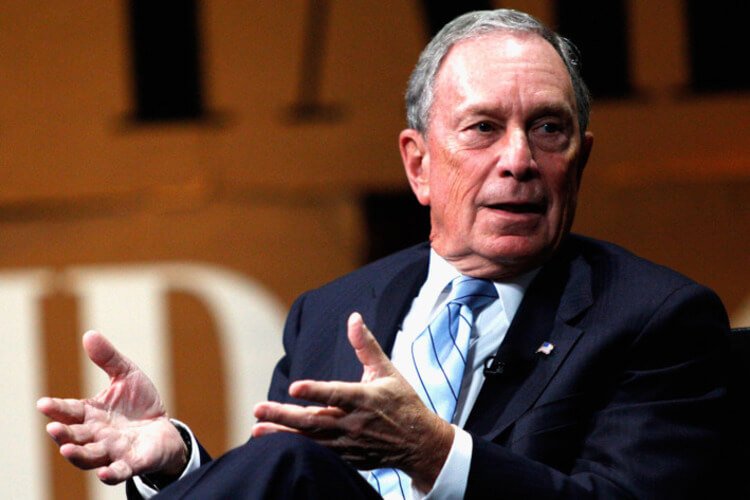“Bitchain”: Michael Bloomberg makes a newbie’s mistake in an interview

Bitcoin’s rise, so fast that it became two thousand dollars more expensive within hours yesterday, has attracted the attention of the traditional media that usually post only major events from the cryptocurrency sphere. The quantity of reports and interviews has risen just like the price of the digital currency, and Bloomberg invited famous Michael Bloomberg, who leads Bloomberg LP and once even planned to run for President, and Goldman Sachs CEO Lloyd Blankfein to let the audience know what they think on Bitcoin.
Michael Bloomberg offers to forget about frauds, tulip bulbs and all negative stuff people say about Bitcoin and focus on what really matters — small businesses that create products and stumble across various obstacles on their way.
Lloyd Blankfein reaffirmed his previous position: “It’s not for me, but there’s a lot of things that weren’t for me in the past”. Bloomberg continued and made a mistake which might seem funny in the days when all major corporations already know the world “blockchain” very well: “I think people confusing it with bitchain” and shortly described the benefits of blockchain while telling Bitcoin does not look like a currency with a store of value. Mr. Blankfein quickly corrected the businessman about “bitchain” and told if something increases at 20% in such a short time, it simply cannot expect full market trust.
M. Bloomberg on the left, content courtesy of Bloomberg
Overall, two influential market figures leave an impression that the traditional market is not thrilled with the rise of Bitcoin. While Lloyd Blankfein is clearly amused with the questions about Bitcoin, considers it non-serious business but prefers not to explicitly tell his opinion, Michael Bloomberg sees nothing good in cryptocurrencies, but something good in blockchain.
Meanwhile it became known to the press that Futures Industry Association (FIA), which has Goldman Sachs as a member, has written an open letter to the CFTC about Bitcoin futures and shared its concerns about how fast the Commission decided to allow Bitcoin futures.